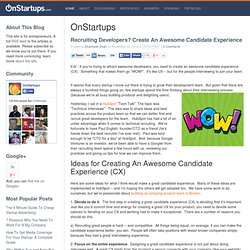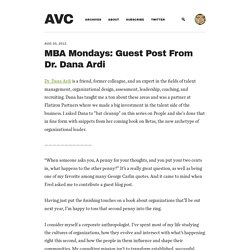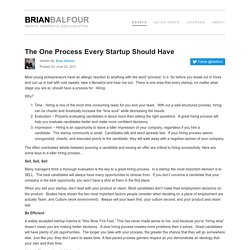

Open Salaries at Buffer: Our Transparent Formula and All Our Salaries. UPDATE November 25, 2015: We have a brand-new salary formula and an updated, searchable list of all our salaries.

Find it all here! When we first established the Buffer values that we wanted to have as the center of our company culture, we knew that sticking to these ideas would be an incredible challenge. Especially since we’ve seen before that these values can easily end up being little more than a set of words written on a piece of paper. In our culture deck, the second value on our list at Buffer is “Default to Transparency.”
With this point especially, we started to think about everything we do within the company and how we could change it to something more transparent. Sticking to radical transparency was probably both one of the most frightening and exciting things to do over the past months. From the examples above, I often reflect on the power of transparency. Another thing that happens when you default to transparency is that it breaks down barriers within the team drastically. This is Why People Leave Your Company. Recruiting Developers? Create An Awesome Candidate Experience. Tl;dr: If you're trying to attract awesome developers, you need to create an awesome candidate experience (CX).

Something that makes them go "WOW! ". It's like UX -- but for the people interviewing to join your team. MBA Mondays: Guest Post From Dr. Dana Ardi. Dr.

Dana Ardi is a friend, former colleague, and an expert in the fields of talent management, organizational design, assessment, leadership, coaching, and recruiting. Dana has taught me a ton about these areas and was a partner at Flatiron Partners where we made a big investment in the talent side of the business. I asked Dana to "bat cleanup" on this series on People and she's done that in fine form with snippets from her coming book on Betas, the new archetype of organizational leader. “When someone asks you, A penny for your thoughts, and you put your two cents in, what happens to the other penny?” It’s a really great question, as well as being one of my favorite among many George Carlin quotes. Tony Hsieh of Zappos advice on entrepreneurship. Exclusive Interview With Zappos CEO Tony Hsieh. Our guest today is Tony Hsieh, the CEO of Zappos, the footwear and apparel company online that was sold to Amazon last year for more than a billion dollars.

Let's talk to Tony. So, welcome Tony. You sold Zappos to Amazon about a year ago now. A lot of people were worried at the time; okay, it's going to wreck the culture. It's such a strange move for the company. It's been going great. And why would Amazon do this? Well, what's interesting, and I actually talk about it in the book, is Amazon actually tried to buy Zappos four or five years earlier.
And I think when they found that Endless was not as big as Zappos over a period of four or five years, I think they recognized that, at least in soft goods, footwear and apparel, it required a different strategy and skill set than what Amazon is good at. That sounds actually sort of strange because Jeff Bezos from the beginning has been so fanatically focused on customers and the most customer centric company in the world. Yes. Speaking frankly about my stuff. Simon Sinek: How great leaders inspire action. How To Create A Corporate Culture Of Innovation.
Journeymen, Mavericks & Superstars: Understanding Salespeople at. What Makes A Kick-Ass Tech Team? 20 rules of thumb for building a great startup culture. (Editor’s note: Scott Weiss is the former co-founder and CEO of IronPort Systems.

He submitted this column to VentureBeat.) Developing a good, healthy culture is extremely important at a startup. Culture reflects the essence of a startup’s operation because it directly affects the success of a company’s hiring practices and overall strategy. It is, at its core, essentially a set of shared norms and a key source of strength and guidance when a startup goes through those virtually inevitable trying times.Some fundamental practices are obvious “must-dos” in building a strong culture. You must, for example, work to engender trust. While these points create the core foundation for a good culture, it’s just the beginning. Personally interview every new employee until the startup has 50 employees.
I’ve been fortunate to have the opportunity to work with many successful executives and have found these tips to be very effective. Are you making or losing money with marketing automation? Brian K Balfour · The One "Process" Every Startup Should Have. Most young entrepreneurs have an allergic reaction to anything with the word “process” in it.

So before you break out in hives and curl up in ball with cold sweats, take a Benadryl and hear me out. There is one area that every startup, no matter what stage you are at, should have a process for. Hiring. Why? Time - Hiring is one of the most time consuming tasks for you and your team. The often overlooked details between sourcing a candidate and issuing an offer are critical to hiring successfully. Sell, Sell, Sell Many managers think a thorough evaluation is the key to a great hiring process.
When you sell your startup, don’t lead with your product or vision. Be Efficient A widely accepted startup mantra is “Hire Slow, Fire Fast,” This has never made sense to me. Make It Thorough and Challenging Being efficient doesn’t mean cutting corners. Reward Value, Not Face Time - Tony Schwartz.